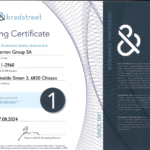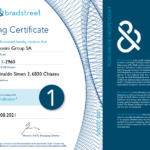It is governed by Articles. 40 et seq. of the TULD n. 43/1973 and the subsequent provisions of the Community Customs Code arts. 5 ss. Reg. EEC 2913 of 1992.
Acts and/or operations at Customs can be carried out personally and by means of a direct or indirect representative. It should be noted that indirect representation integrates a mandate without a representative and, thus, for the civil code such is the figure of those who act in their own name and on behalf of others (art. 1705 c.c. the agent who acts in his own name acquires the rights and assumes the decision-making obligations of the acts carried out with third parties even if they have had knowledge of the mandate).
The concepts of direct and indirect representation have been well identified in the Community Customs Code.
Under the Community Customs Code (Article 5), the representative must always declare that he is acting for the person represented, and thus specify whether it is a direct or indirect representation and must have the power of representation. This precept is relevant in relation to the birth of the customs debt because for art. Under Article 201 of the Community Customs Code in the case of indirect representation, the principal or the person on whose behalf the customs declaration is lodged is also liable for the customs debt.
In any case, those who act as representatives must have the power of representation and therefore, in a purely legal sense, must have a mandate contract relating to the acts and/or operations to be carried out at customs. This is necessary because (art. 5, paragraph 6 of the Code Dog. Com.) the Customs Authority can ask anyone who declares to act in the name or on behalf of another person (and therefore directly or indirectly) to provide evidence of his power of representation.
It goes without saying that it is possible to be a representative of a natural person, of a legal person, of an association that has the capacity to act. Therefore, the relative principal and so the “person” is the one identified, in several ways, by art. 4) Code Dog. Com.
In the more specific context of the domiciliation procedures assigned to some customs operators, it is necessary to underline what is governed by Circular 27 D of 18 July 2005: the beneficiary of the domiciliation procedure, if it is an intermediary subject (Shipping House, CAD, etc.), who already represents the recipient / exporter must act within the indirect representation as a declarant by submitting the declaration in his own name and specifying operate on behalf of the recipient / sender in order to ensure the applicability of the aforementioned articles. 201, p. 3 and 209, p. 3 of the Community Customs Code.








